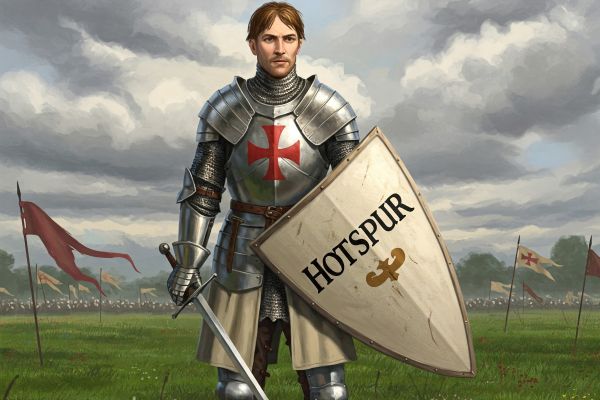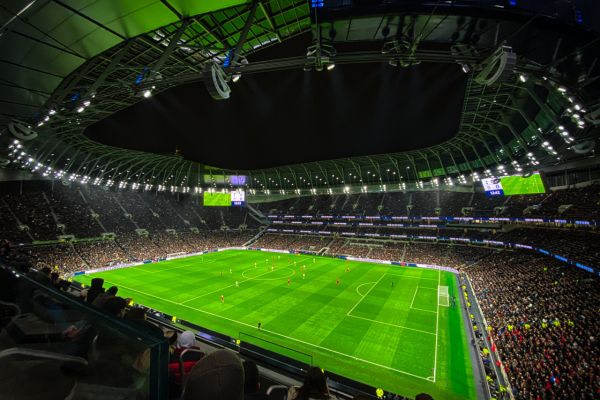"CHARGE!" roared Sir Henry Percy, sword raised high. "ARRRGHHH!" came the reply as his men surged forward in the Battle of Shrewsbury. Moments later, Sir Henry fell, a valiant but doomed attempt to claim victory for his rebel cause.
What he could never have imagined was that centuries later, in a stadium in North London, his name would still echo — not through war cries, but chants of “Come on you Spurs!”
Who Was Harry Hotspur?

Sir Henry Percy, also known as Harry Hotspur, was a famed English knight in the late 14th century. Revered for his military skill and swiftness in battle, legend has it he earned the nickname “Hotspur” for his tendency to spur his horse hard into action.
His story became immortalized in Shakespeare’s Henry IV, Part 1, where he appears as a fierce, proud nobleman who defies King Henry IV. He died in 1403 at the Battle of Shrewsbury.
The Football Connection
So how does a 14th-century knight inspire a modern-day football team?
In 1882, a group of schoolboys founded Hotspur Football Club, named after the Hotspur Cricket Club, where many of them also played. That cricket club took its name from Sir Henry Percy, due to their ground being near Northumberland Park — land associated with the Percy family.
To distinguish themselves from other teams and reflect their local roots, the football club soon became Tottenham Hotspur.
Legacy on the Terraces

Today, chants like "Come on you Spurs!" and "When the Spurs Go Marching In" fill the air at Tottenham Hotspur Stadium. What started as a nod to a historical figure has become a powerful identity in world football.
The name “Spurs” isn’t just cool — it’s practical. It’s easier to chant, tweet, and remember than “Tottenham,” and has become a unique part of the club's global brand. #COYS
So next time you hear the trumpet call before kickoff, and the crowd bursts into song, remember: this isn’t just a modern ritual — it’s the echo of a centuries-old legacy.
For more stories like this, check out our Fascinating Origin Stories page.
